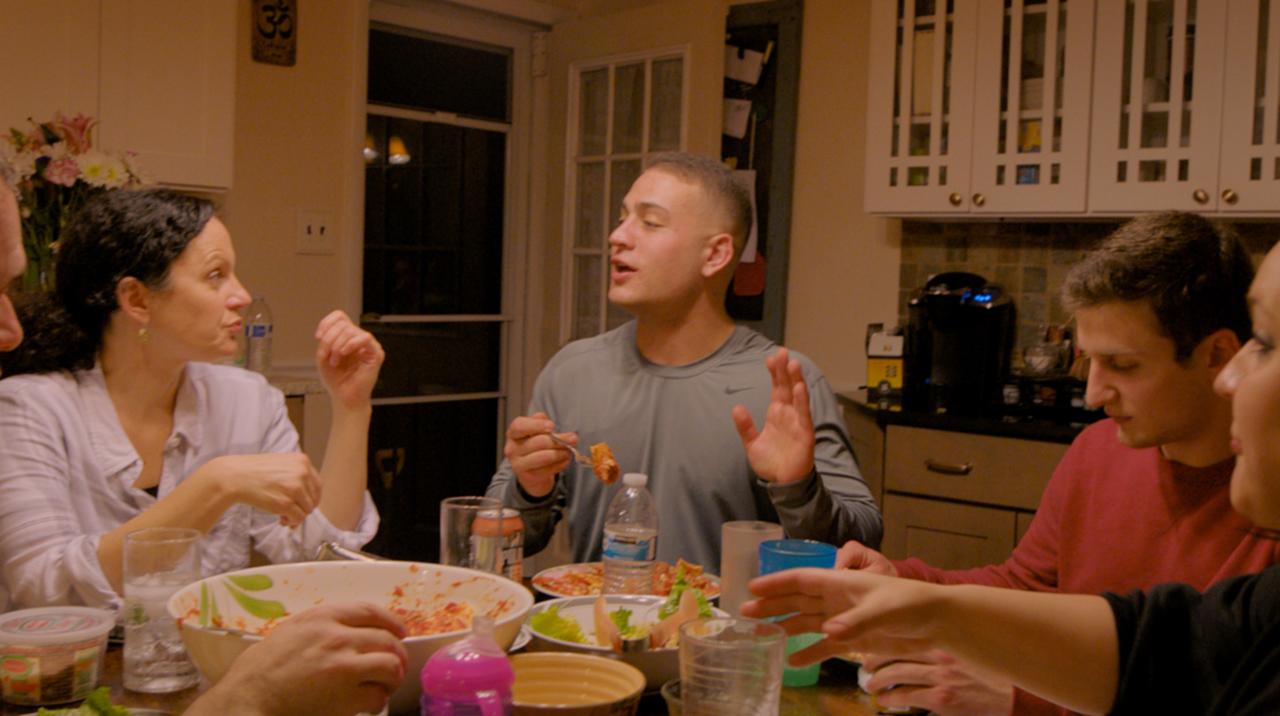
- Film
“Our American Family” Documentary Tells Addiction Story Which Translates Across Cultures
Disease in all forms, and the manner in which it robs us of our loved ones, is a terrible and sad thing. But the crippling disease of addiction can deliver special heartache, because of the manner in which it not only destroys one life but metastasizes through families, ripping them apart and sometimes pitting loved ones against one another in the debate over how to best assist a person in need.
Pegged to National Recovery Month, the documentary Our American Family tells one such tragic and distressing story, receiving a theatrical release alongside its September 6 debut across all major VOD platforms. Co-directed by Hallee Adelman and Sean King O’Grady, the movie elicits an involving universal sympathy through the lens of a close-knit Pennsylvania family grappling with generational specters of this genetic predisposition, and the fallout from one member’s struggle to remain committed to recovery.
Our American Family unfolds over the course of roughly one year in a Philadelphia exurb. Its vibe is somewhat reminiscent in a way of American sitcoms like Roseanne and The Conners — blue-collar, modestly educated domestic units marked by intense bickering, but also an offsetting fierce devotion. Like the fictional family of those shows, this isn’t one where feelings are particularly tiptoed around, or things ever left unsaid.
When the film begins, 29-year-old Nicole has a couple months of sobriety under her belt, but is living in a halfway house which grants her only limited visitation privileges with her two-and-a-half-year-old daughter Giovanna, who is being raised by Nicole’s mother Linda and stepfather Bryan. They and the rest of Nicole’s family, middle brother Chris and youngest brother Stephen, have no small amount of pessimism that this latest stint in rehab (is the 17th, or 19th, one wonders) will end much differently for Nicole than the ones which preceded it.
Still, Linda, grappling with memories of her own mother’s anorexia and other disorders, remains a steady advocate for her daughter, even in moments of tremendous pique. As an emotionally stunted Nicole struggles with late-onset maturation (“I just don’t know how to be,” she says plaintively at one point), will the surfaced resentments of her family and the especially combative Chris, and/or her own frustrations over both consequences of her actions to date and having to finally get a job, combine to trigger her disease and pull her back into an abyss? Or will she, finally, turn a corner?
Unaddressed by Our American Family, perhaps understandably and reasonably, is the relative chasm of consideration and compassion between what is afforded Nicole, as a young white single mother, and how significant portions of America treated (in the past) and still now regards minority communities in larger urban areas also doing battle with drug addiction. That macro issue is not the focus of this film, of course. But a more reflective viewer can’t help but ponder it at least a little bit when sifting through the film, given some of its behavioral revelations.
Composer Gil Talmi contributes a nice score, and Adelman and O’Grady make effective, poignant use of The National’s “I Am Easy to Find” for one atypical montage-type sequence. For the most part, though, Our American Family is a movie which simply leans slowly into the lives of its subjects, summoning forth an intimacy from their conversations, arguments, and shared feelings. There isn’t a lot of narrative flashiness or gimmickry, or fingers placed on the storytelling scale.
This tack allows for the few moments when the filmmakers do engage in more overt acts of dramatic construction — as with an argumentative dinner sequence which layers in separate audio from Stephen in which he talks about the experience and weight of the smallest things in others’ lives always being bigger than the biggest event in his own life — to land with more of an impact.
The basic watchability of Our American Family feels very rooted at times in a will-the-parachute-open? outcome-based concern. While other traumas (childhood sexual abuse and past suicide attempts) are touched upon, a more robust inventorying and emotional unpacking of these events and feelings — and the connection between nature and nurture, lived experience and decisions avoided — feels a bit like it was left ripe on the vine.
That said, Our American Family still tells an engaging, heartrending story. The very streamlined approach which Adelman and O’Grady take in crafting their movie, focusing tightly on its core characters and mostly eschewing digressions into the realms of criminal justice and treatment, makes the film more broadly relatable. Yes, this is perhaps an American story, but the language of family in which it unfolds, and the turbulent fight both with and ultimately for blood kin, is something which translates across all cultures.

